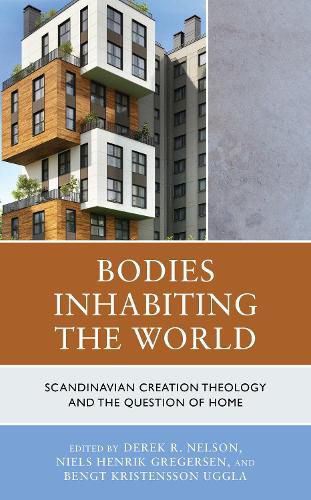Readings Newsletter
Become a Readings Member to make your shopping experience even easier.
Sign in or sign up for free!
You’re not far away from qualifying for FREE standard shipping within Australia
You’ve qualified for FREE standard shipping within Australia
The cart is loading…






Bodies Inhabiting the World: Scandinavian Creation Theology and the Question of Home offers a multidimensional investigation of how houses, bodies, communities and the whole universe may be conceived and refigured as places where we belong-where we are at home in God's creation. In this way, revisiting the tradition of Scandinavian creation theology provides profound resources to make theological affirmations of God's omnipresence in the human condition we all share. The emergence here of an exciting new theological program can be recognized-beyond the limitations of other contemporary agendas' cul-de-sacs, blind spots and diffidence.
What it is to have a home is a universal question closely connected to what it means to be human and to live a good, flourishing, life. But the negative experiences of homelessness, broken homes, statelessness and alienation always lurk in the background of the universal quest to find one's home in the world. This book contains fourteen essays exploring the dynamics of the human experience of finding, losing and finding again a home.
$9.00 standard shipping within Australia
FREE standard shipping within Australia for orders over $100.00
Express & International shipping calculated at checkout
Bodies Inhabiting the World: Scandinavian Creation Theology and the Question of Home offers a multidimensional investigation of how houses, bodies, communities and the whole universe may be conceived and refigured as places where we belong-where we are at home in God's creation. In this way, revisiting the tradition of Scandinavian creation theology provides profound resources to make theological affirmations of God's omnipresence in the human condition we all share. The emergence here of an exciting new theological program can be recognized-beyond the limitations of other contemporary agendas' cul-de-sacs, blind spots and diffidence.
What it is to have a home is a universal question closely connected to what it means to be human and to live a good, flourishing, life. But the negative experiences of homelessness, broken homes, statelessness and alienation always lurk in the background of the universal quest to find one's home in the world. This book contains fourteen essays exploring the dynamics of the human experience of finding, losing and finding again a home.